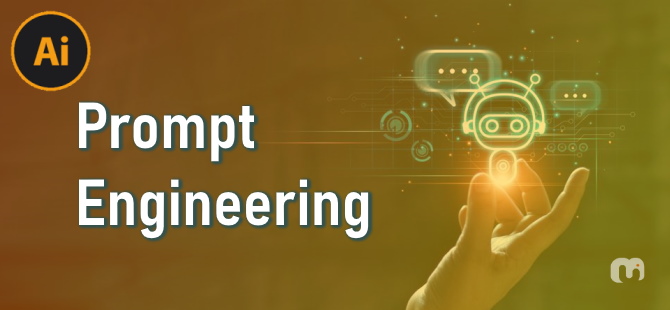Introduction
Prompt Engineering, a specialized discipline within engineering, is an innovative approach that leverages generative AI tools to facilitate the design and development of engineering solutions. In this comprehensive post, we will delve into the world of Prompt Engineering, exploring its significance, methodologies, and the transformative role that generative AI tools play in this exciting field.
I. Understanding Prompt Engineering
Prompt Engineering can be understood as the art and science of formulating precise and effective prompts for generative AI tools to generate desired outputs. In essence, it bridges the gap between the creative capabilities of AI and the specific requirements of engineering applications. Prompt Engineering is characterized by its structured approach and iterative processes.
II. The Significance of Generative AI Tools in Engineering
Generative AI tools are revolutionizing the engineering landscape. They possess the capacity to interpret complex requirements, generate design concepts, simulate behaviors, and optimize solutions. Here's how generative AI tools are reshaping engineering practices:
2.1 Design Generation
Generative AI tools can create a vast array of design alternatives, considering various parameters and constraints. This diversity leads to more innovative and efficient designs in fields such as product design, architectural planning, and mechanical engineering.
2.2 Simulation and Analysis
In engineering, simulation is crucial for assessing the performance of designs. Generative AI tools enhance simulation processes, enabling engineers to model complex systems, analyze their behavior, and predict outcomes with greater precision.
2.3 Optimization
Optimizing engineering solutions for efficiency and performance is a fundamental aspect of engineering. Generative AI tools excel in finding optimal solutions by adjusting parameters and constraints iteratively, resulting in designs that meet specific criteria with minimal resources.
2.4 Decision Support
Generative AI tools provide valuable insights to engineers and stakeholders, facilitating informed decision-making. This data-driven approach enhances collaboration, as it gives all parties a common ground for discussing, sharing, and refining design ideas.
III. Methodologies in Prompt Engineering
Prompt Engineering involves a structured approach to harness the power of generative AI tools effectively. The process can be divided into several key phases:
3.1 Problem Definition
In this phase, engineers clearly define the engineering problem they intend to solve. It involves specifying objectives, constraints, and the desired outcomes in a language that can be understood by AI systems.
3.2 Prompt Formulation
Prompt formulation is the heart of Prompt Engineering. Engineers craft prompts to instruct generative AI tools. The prompts should be precise, comprehensive, and tailored to the problem, allowing the AI system to generate relevant outputs.
3.3 Iterative Refinement
Prompt Engineering is an iterative process. Engineers continuously evaluate and refine prompts based on the outputs generated by generative AI tools. The feedback loop allows for gradual improvements in prompt quality.
3.4 Evaluation and Validation
Generated designs and solutions are evaluated to ensure they meet the defined objectives and constraints. This phase verifies the effectiveness of the generative AI tools and prompt engineering methodologies.
IV. Real-world Applications
Prompt Engineering with generative AI tools is being applied in various domains, including:
4.1 Product Design
In product design, generative AI tools assist in generating creative design concepts. They consider factors such as material selection, manufacturing processes, and cost constraints, leading to more innovative and cost-effective products.
4.2 Architectural Planning
Architects and urban planners use generative AI tools to explore new architectural designs and urban planning solutions. These tools assist in optimizing building layouts for energy efficiency and sustainable urban development.
4.3 Mechanical Engineering
Mechanical engineers leverage generative AI tools for structural design, fluid dynamics simulations, and component optimization. This leads to the development of efficient and high-performance mechanical systems.
V. Challenges and Considerations
As engineering embraces generative AI tools through Prompt Engineering, it faces certain challenges:
5.1 Data and Training
Generative AI tools require extensive training data. Engineers must ensure data quality and diversity for effective model training.
5.2 Ethical and Regulatory Concerns
The use of AI in engineering raises ethical and regulatory concerns, such as transparency, accountability, and compliance with data privacy and safety regulations.
5.3 Continuous Learning and Adaptation
AI and generative AI tools are evolving rapidly. Engineers need to stay up-to-date with the latest advancements in AI technology to harness these tools effectively.
VI. Future Prospects
The future of Prompt Engineering with generative AI tools holds great promise. Key trends to anticipate include:
6.1 Increased Automation and Autonomy
Generative AI tools are becoming more autonomous, allowing for increased automation in design, simulation, and optimization processes. This will lead to faster and more efficient engineering solutions.
6.2 Cross-disciplinary Collaboration
As generative AI tools become more sophisticated, they will facilitate greater collaboration among engineers, architects, and designers. Cross-disciplinary teams will work together seamlessly, leveraging AI to address complex, multifaceted challenges.
6.3 Customization and Personalization
AI-powered engineering solutions will become increasingly customizable to specific project requirements, enhancing their applicability across a wide range of engineering domains.
Conclusion
Prompt Engineering, with its focus on crafting precise prompts for generative AI tools, is ushering in a new era of innovation and efficiency in engineering. By harnessing the capabilities of generative AI, engineers and designers can generate cutting-edge solutions that meet the evolving demands of our world. As this field continues to evolve, the collaboration between engineering expertise and AI technology is poised to revolutionize the way we design, simulate, and optimize engineering solutions.
